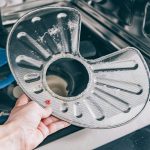In the world of car maintenance, undercarriage cleaning often gets overlooked. However, this shouldn’t be the case. Regular undercarriage washes are instrumental in maintaining your vehicle’s health and safety. Today, we’ll discuss the importance of undercarriage cleaning, the potential risks of neglecting this task, and how routine washes can help prevent undercarriage damage.
Understanding Undercarriage Cleaning
Before delving into the significance of undercarriage cleaning, it’s essential to know what it entails. This process involves cleaning and removing dirt, salt, and grime that accumulates under your car. Your undercarriage takes a lot of abuse from road debris and grime, which can accelerate the wear and tear of your vehicle if left unchecked.
This might interest you : What are the signs that the thermal management system in an electric vehicle needs servicing?
Undercarriage cleaning is more than just a superficial car wash; it’s a thorough cleaning protocol designed to protect your vehicle’s critical components, including the brake system, exhaust and suspension systems, and electrical wiring. If these components were to be compromised by corrosion, it would not only result in costly repairs but could also compromise the safety of your vehicle.
The Risk and Impacts of Neglecting Undercarriage Cleaning
Neglecting undercarriage cleaning can lead to the accumulation of road grime, dirt, salt, and other corrosive materials. These substances can cause rust, a silent destroyer that can damage your vehicle’s critical components over time.
Rust can eat away at your car’s metal parts, weakening the structure and eventually causing significant damage. It’s particularly problematic in areas exposed to salts, such as coastal regions or areas that use road salt during the winter. The salt accelerates the rusting process, causing more significant damage to your vehicle’s undercarriage.
Aside from physical damage, rust can also compromise the performance and safety of your vehicle. Rusty brake lines can lead to brake failure, while a corroded exhaust system can cause harmful gases to leak into your car’s interior. As such, routine undercarriage washes are crucial in managing and preventing rust.
How Regular Undercarriage Washes Can Help
Now that we’ve identified the risks of neglecting undercarriage cleaning, let’s delve into how regular washes can help. These washes can effectively remove salts, dirt, and other corrosive substances, preventing corrosion and rust from forming.
An undercarriage wash utilizes pressurized water to effectively clean hard-to-reach areas. This pressure is enough to dislodge stubborn dirt and grime, allowing for a thorough clean. Moreover, many professional car washes use specialized cleaning solutions that can neutralize corrosive substances, providing an extra layer of protection for your undercarriage.
Regular undercarriage cleaning can help extend your vehicle’s lifespan, reduce repair costs, and enhance your car’s performance by keeping critical components in good condition.
Tips for Effective Undercarriage Cleaning
For effective undercarriage cleaning, consider these tips:
-
Frequency: The frequency of your undercarriage washes should depend on your environment and how you use your vehicle. If you frequently drive in places with a lot of road salt or live near the coast, consider getting undercarriage washes more frequently.
-
Professional services: While you can perform an undercarriage wash at home, professional car washes can provide a more thorough clean. They use specialized equipment and cleaning solutions that can effectively remove dirt, grime, and corrosive substances.
-
Inspection: Regular inspection of your undercarriage is crucial to catch early signs of rust or corrosion. If you spot rust during your inspection, consider getting professional help to address the issue promptly.
-
Rust-proofing: Consider investing in a rust-proofing treatment for your undercarriage. This can provide additional protection against rust and corrosion.
In essence, undercarriage cleaning is a vital aspect of car maintenance that’s often overlooked. However, it’s crucial for maintaining your vehicle’s performance, extending its lifespan, and most importantly, ensuring your safety on the road. So make sure to incorporate regular undercarriage washes into your car maintenance routine.
The Role of a Rust Inhibitor in Undercarriage Cleaning
Expanding the scope of undercarriage cleaning, we move to the crucial aspect of rust prevention. An essential part of this process is the application of a rust inhibitor. A rust inhibitor, as the name suggests, helps prevent the formation of rust on your vehicle’s undercarriage. This is of utmost importance considering the vulnerability of this area to rust, especially in regions where road salt is commonly used or for vehicles frequently driven on sandy or muddy roads.
Using a rust inhibitor after an undercarriage wash is a proactive measure to protect your vehicle from future corrosion. This product works by forming a protective coating on the metal surfaces of your undercarriage. This coating serves as a barrier that prevents moisture, dirt, grime, and other corrosive materials from making direct contact with your car’s metal parts.
Some rust inhibitors also contain components that actively neutralize existing rust, stopping it from spreading further. Quality rust inhibitors are resistant to high temperatures and pressures, so they can withstand the harsh conditions that your undercarriage is exposed to.
Although the application of a rust inhibitor can be done at home, it’s generally recommended to have it done by professionals. They have the necessary equipment to ensure an even application and can reach areas that may be hard to access otherwise.
Remember, the best time to apply a rust inhibitor is immediately after an undercarriage wash, while the undercarriage is still clean and dry. This will ensure maximum adhesion and effectiveness of the rust inhibitor.
Conclusion: Securing Your Safety Through Undercarriage Cleaning
In summing up, it’s clear that undercarriage cleaning is a critical component of automobile maintenance that should never be neglected. It’s not just about keeping your vehicle looking good, but it’s about ensuring its performance, longevity, and, most importantly, safety.
Regular undercarriage washes, coupled with the use of a rust inhibitor, can effectively ward off the common enemy of cars – rust. Stay ahead of potential issues by incorporating these procedures into your regular car care routine. From managing dirt, grime, road salt, and other corrosive substances to preventing rust formation, underbody washes play a crucial role in maintaining your vehicle’s health.
Moreover, while washing your undercarriage at home is an option, consider using professional car wash services. They have specialized equipment and cleaning solutions that can provide a comprehensive and effective clean. Plus, they can apply rust inhibitors evenly, ensuring every nook and cranny of your undercarriage is protected.
Ultimately, ensuring your undercarriage is clean and free from rust is an investment in your safety. So, make it a habit to schedule regular undercarriage cleaning. It’s a small task that can make a significant difference in the safety and performance of your car. Never underestimate the power of a good undercarriage wash because it might just save you from a future car disaster.











